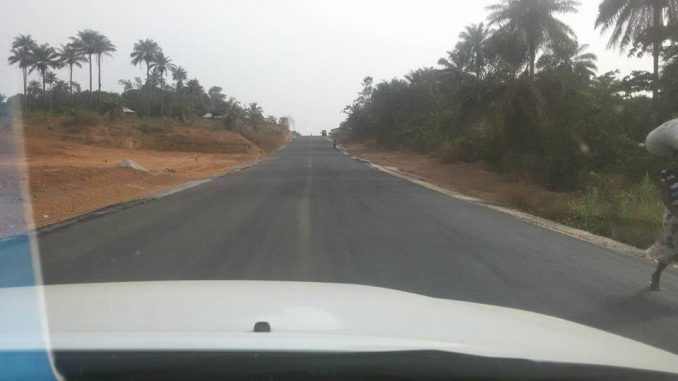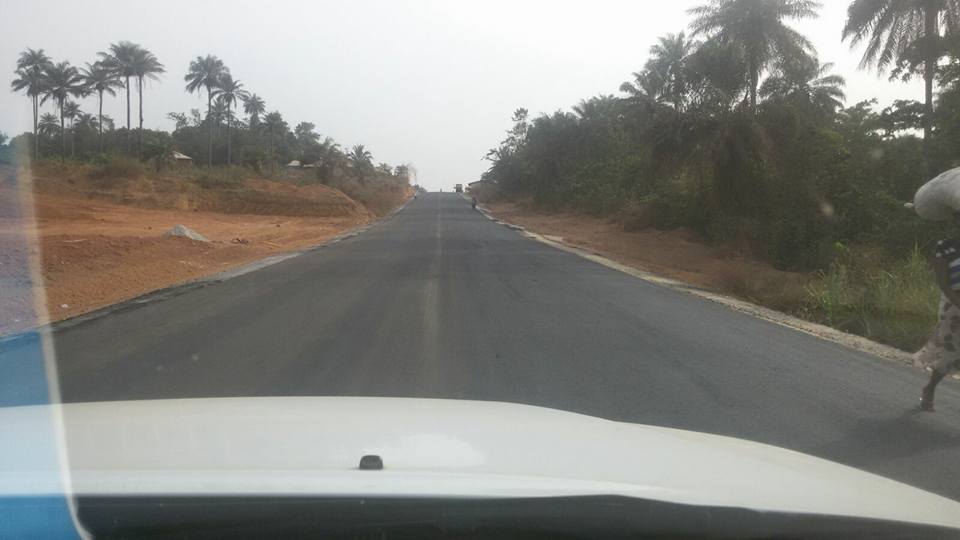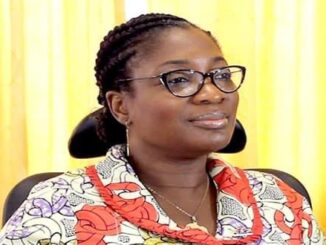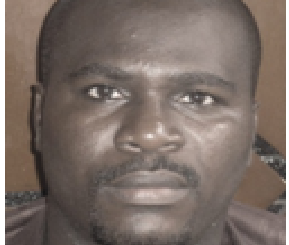
The development of road infrastructure to enhance regional development and trade has been given a boost by the government in its quest to improve transport and trade links with its neighbours in the Mano River Union.
In pursuant of this objective, funds have been acquired from development partners such as the African Development Bank (AfDB) and the OPEC Fund For International Development (OFID) for the rehabilitation of the Bo-Bandajuma road at an estimated total cost of UA23.84 million.
The Project components include: (i) Infrastructure investments comprising the rehabilitation of Bo-Bandajuma road (46km),, three (3) studies for the construction of Kailahum-Koindu-Guinea border road, a pre-feasibility for rehabilitation of the Mano River Union Bridge and a study for the identification of trade facilitation needs on the MRU corridors; (ii) Project Management (Implementation Support, Financial and Technical Audits, Monitoring and Evaluation); and (iii) Cross cutting and Complementary Components (Compensation of Project Affected People (PAPs) and Awareness Campaigns on HIV/AIDS, Malaria, Ebola, Gender Sensitization and Road Safety).
THE BANDAJUMA-SOWA HIGHWAY IN PUJEHUN, SOUTHERN SIERRA LEONE
The beneficiaries include the local communities within the road zone of influence, which is expected to benefit from the project through provision of reliable access to socio-economic facilities including schools, markets and health centers which in turn should boost the local economy and contribute to poverty alleviation. The road will also serve international traffic within ECOWAS/Mano River Union Region (Liberia, Guinea and Sierra Leone), and will thus contribute to regional integration.
The Project road is a critical link of national and regional importance linking the south eastern parts of the country and regionally to neighboring MRU member states and ECOWAS. The road passes through one of the areas that was severely affected by the Ebola Virus Disease (EVD) Crisis and will aide in the post recovery period in delivery and provision of access to social-economic services.
Though Sierra Leone is endowed with a wealth of fertile land suitable for agriculture much of the activity is concentrated in the north while the south east remains unexploited that presently is not adequate to support agriculture productivity. Located in south-east of the country, the section of road between Bo-Bandajuma thus holds immense potential to open up the region. The road is not only of national importance but regionally is also part of the Trans-African Highway (TAH) 7, from Lagos-Nouakchott providing the main connection between Guinea, Sierra Leone and Liberia.
The road passes through Bo, the country’s second largest town and continues southerly to a small chiefdom community called Bandajuma. Beyond Bandajuma, the section of road is adjacent to the TAH-7 only missing link between Bandajuma to Mano River Union Bridge at the Liberia Border. No doubt, the Bo-Bandajuma road link connects main areas such as Bandajuma, Koribondo, Gondama and as far as MRU to Bo City which has the main district referral hospital.
The current state of the road makes access to referral medical services in Bo City difficult to access because of its deep potholes which are most of the time filled with pools of water. Improved access will lead to expansion of production and enhanced marketing and household incomes as well as new businesses and general economic development along the rehabilitated road. Implementation of the project will also lead to improved transportation services that are expected to drive an increase in the volume of trade and commercial activities in the two districts and in the regions.
Improved transportation services are also expected to result in better access to health care, particularly for expectant mothers with obstructed labour who cannot sustain longer than three (3) hour delay to the nearest health unit at Bo, improved delivery of social services, agriculture and education sectors and increased school enrolment rates. Other social benefits will include: opening up regional markets to local players, thus encouraging the sharing of formal and informal business practices, increasing exposure and connectivity to communities in neighboring regions and countries, thus promoting cultural, social, and economic linkages.
(source: African Development Bank AfDB)




